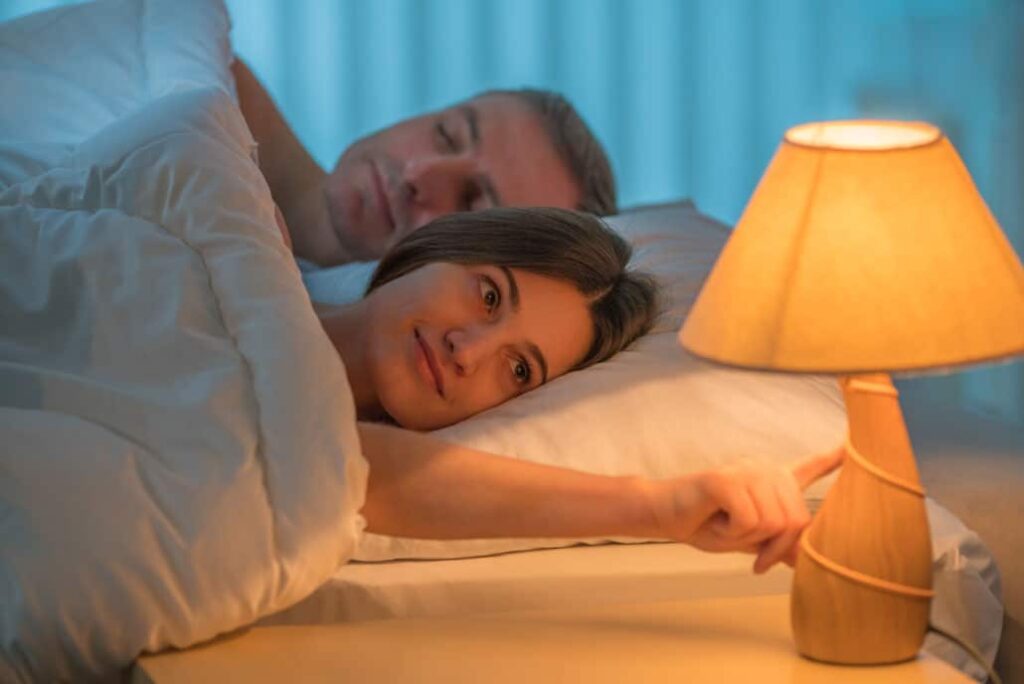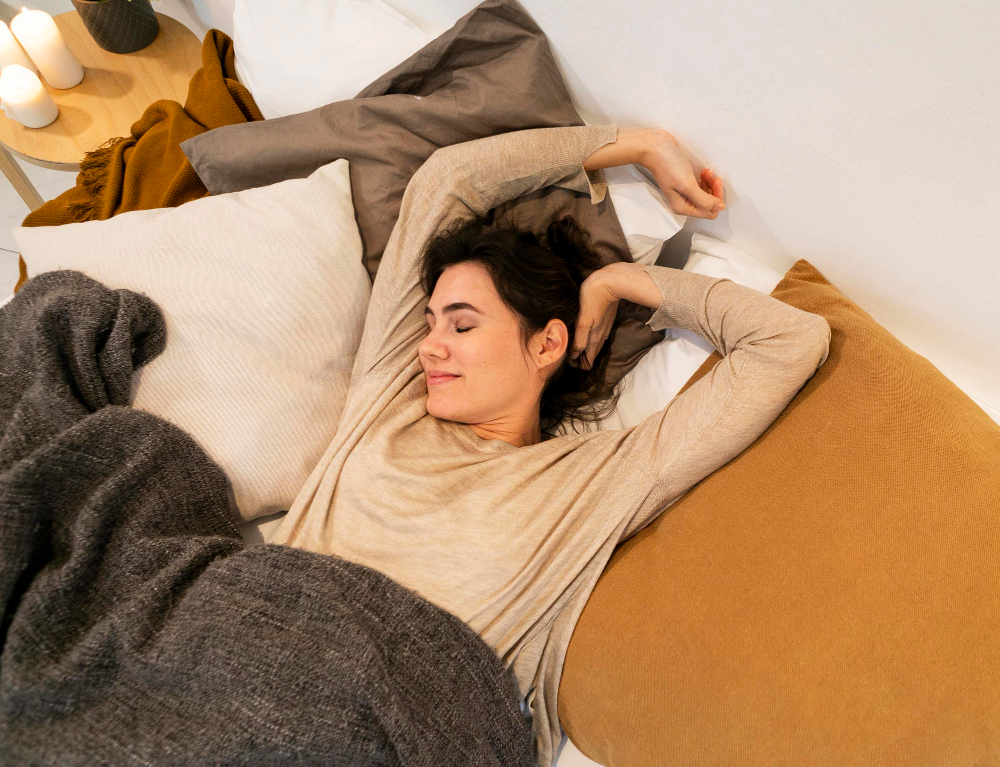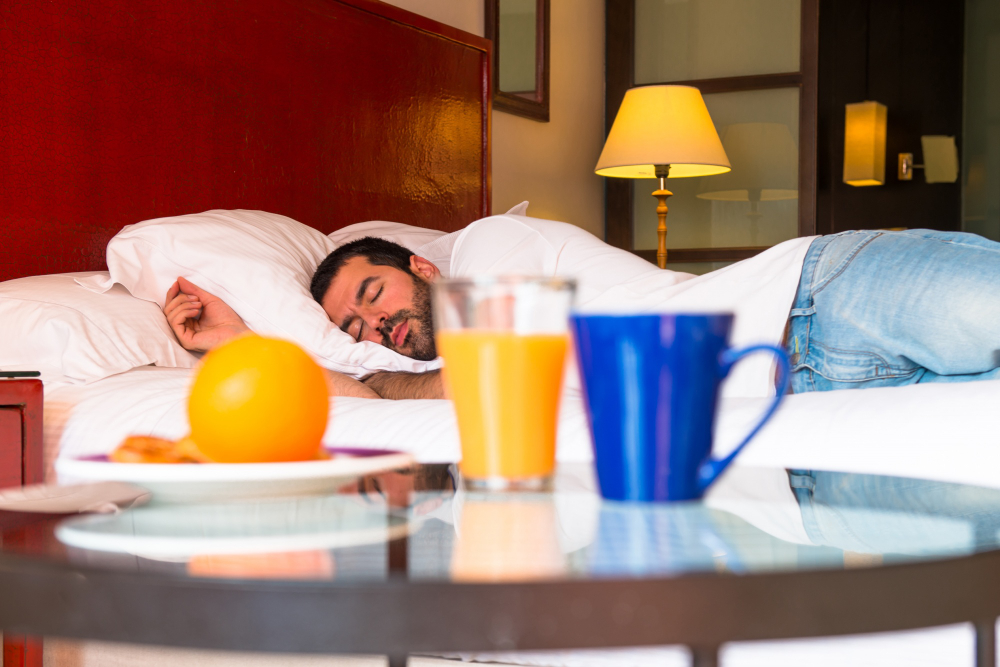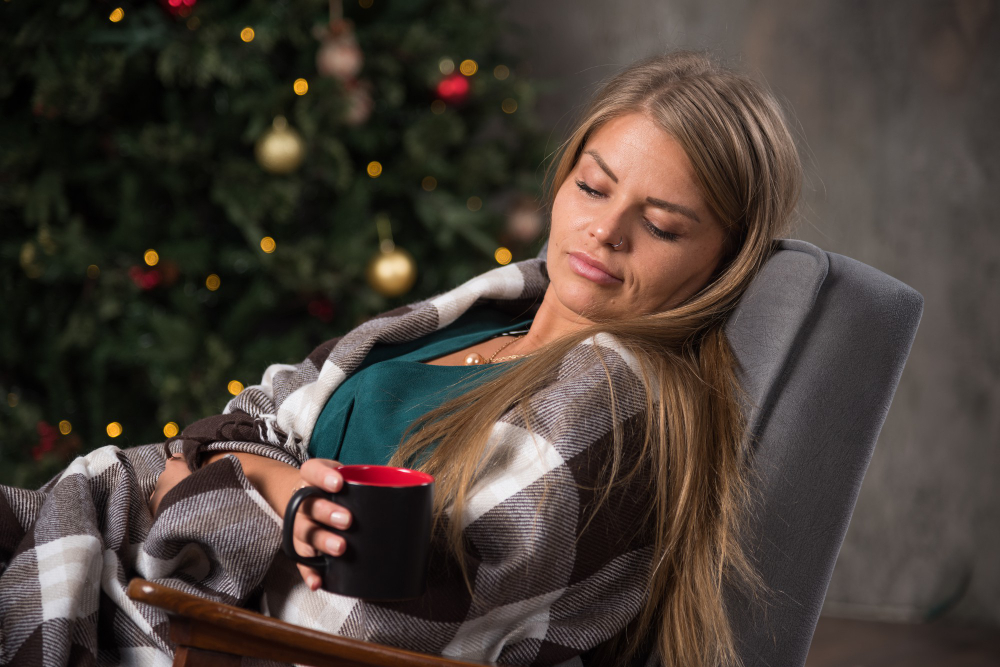
Modern society has brought a lot of light into our lives. Streetlights to guide us, warning lights to alert us, floodlights to protect us. All of which are good. But all that light isn’t always positive – particularly at night. Here’s an illuminating fact: the negative effects of using LED and blue lights at night can be both mental and physical, and they far outweigh any perceived benefits. Hmmm. Sounds like it’s time to come to the dark side – at least after the sun sets.
The Magical Sleep Hormone
To understand the relationship between light and sleep, let’s start by getting to know melatonin – a powerful hormone that helps us fall asleep. Melatonin is a crucial part of our internal biological clock, or to use the scientific term, the circadian rhythm. As nighttime approaches, our bodies naturally produce higher levels of melatonin. When we expose ourselves to bright light during that time, it throws our clocks out of whack and stops the much-needed melatonin from being produced. The result? It’s harder to fall asleep and stay asleep.
Lost Sleep Is Just the Beginning
Losing sleep matters. In fact, research has shown that it can lead to all sorts of issues, from irritability to memory impairment, illness and disease. Melatonin and cortisol, hormones produced at night, can even play important roles in fighting off cancer.
To test this theory, Dr. Richard G. Stevens, cancer epidemiologist and professor at the University of Connecticut Health Center, injected lab rats with breast cancer-causing agents. Half also received injections of melatonin. The rats who received melatonin avoided getting cancer, while the other rats did not.
To lower our risk for getting cancer, it’s important to get a good night’s rest – and a dark room is the best way to guarantee we get those zzz’s.
Shedding Light on Depression
Lighting up our homes in the evenings can also clinically darken our moods. A recent study in Japan showed a strong association between low-level light exposure at night and depressive symptoms in elderly adults. And while this experiment focused on the elderly, study co-author Kenji Obayashi warns that the effects might be even more pronounced among younger people, whose eyes are more sensitive and register more light. Simply falling asleep with the TV on or spending time online before bed can be enough to bring on depressive symptoms in a person of any age.
With that in mind, it’s probably a good idea to shut out as many light sources as possible before you turn in for the night, especially LED ones. The good news is that if you do experience some night-light-related depression, you can easily reverse the effects by changing your habits.
The Right Kind of Light
Now before you throw out all of your night lights, consider this: not all light at night is bad for you. Blue light, the type of bright light that comes from natural sunlight and the LCD/LED screens of our electronic devices, can boost our attention, reaction times and moods during the day. But at night, it disrupts our biological clocks and makes our bodies think we should stay awake when all we need is sleep. Reddish or orangish lights, on the other hand, are the least likely to suppress melatonin production and interfere with sleep. Investing in a few dim, red night lights is one way to appease kids who are afraid of the dark.
Sleep Safely and Soundly
Leaving lights on at bedtime can lead to unsatisfying, disrupted sleep, not to mention all sorts of health risks. Keep these tips in mind to protect yourself from harmful blue light and to get better quality sleep.
- Power down your electronics. Before you hit the pillow, turn your TV, laptop and phone to “night mode” and limit your use of other blue light, such as LEDs, at least an hour before bed. When your electronics are in “night mode,” they will have yellow screens instead of blue ones and won’t distract you before bedtime.
- Healthy sleep equals stress-free sleep. Turn your bedroom into a worry-free zone right before you hit the hay. Since blue light disturbs sleep, keep your electronics away from you so you won’t be tempted to check anything in the middle of the night.
- An app may be your answer. Can’t seem to break your habit of using electronics at night? Install an app to filter out the blue wavelengths for you.
- Pure darkness is key. Set yourself up to sleep better by using blackout curtains and/or a sleep mask.
- Dim the lights down low. Install dimmer switches so you can lower the lights at night to help your body prepare for sleep.
Let There Be Light! (In the Morning, That Is…)
While you want a dark bedroom for sleeping, waking up to light in the morning is actually a good thing. Exposure to natural light helps boost your mood and increase levels of energy and alertness, so open the curtains as soon as you’re up and at ’em!
If you wake up before the sun does, there are other types of light that are safe to use in the morning. Lower-wattage lightbulbs (between 45 and 50 watts) offer gentle light. Smart lightbulbs change color, and while you can program them to switch to yellow/amber lights to help you sleep at night, you can also have them change to brighter lights in the morning.
What if I Still Can’t Fall Asleep?
If you follow these tips and still have struggles sleeping, talk to your doctor to see if you have underlying issues, like a sleep disorder, that may need to be treated. They just might shine a light on the path to quality sleep.
Follow our tips to protect yourself from harmful light and get the sleep your body needs. #BSCSleepTips @BetterSleepOrgSources:
- https://www.nytimes.com/2017/02/10/realestate/light-bulbs-that-help-you-sleep.html
- https://www.health.harvard.edu/staying-healthy/blue-light-has-a-dark-side
- https://www.nytimes.com/2018/03/05/well/family/children-sleep-light-melatonin.html
- https://www.cnet.com/how-to/why-your-next-light-bulb-should-be-a-smart-bulb/
- https://www.medicaldaily.com/lack-sleep-light-night-can-raise-cancer-risk-238184
- http://time.com/5189387/dark-room-sleep-study/ https://www.dailymail.co.uk/sciencetech/article-2178090/Too-light-night-causes-depression.html
This blog provides general information about sleep and sleep products. The words and other content provided in this blog, and in any linked materials, are not intended to replace a one-on-one relationship with a qualified heath care professional. This blog should not be construed as medical advice or used to diagnose, treat, prevent or cure any disease or condition. If the reader or any other person has a medical concern, he or she should consult with an appropriately-licensed physician or other health care professional. This blog is not a substitute for professional medical advice, diagnosis or treatment, and should not be relied upon to make decisions about your health or the health of others. Never disregard professional medical advice or delay in seeking it because of something you have read on this blog or elsewhere on bettersleep.org. If you think you may have a medical emergency, immediately call your doctor or dial 911.



